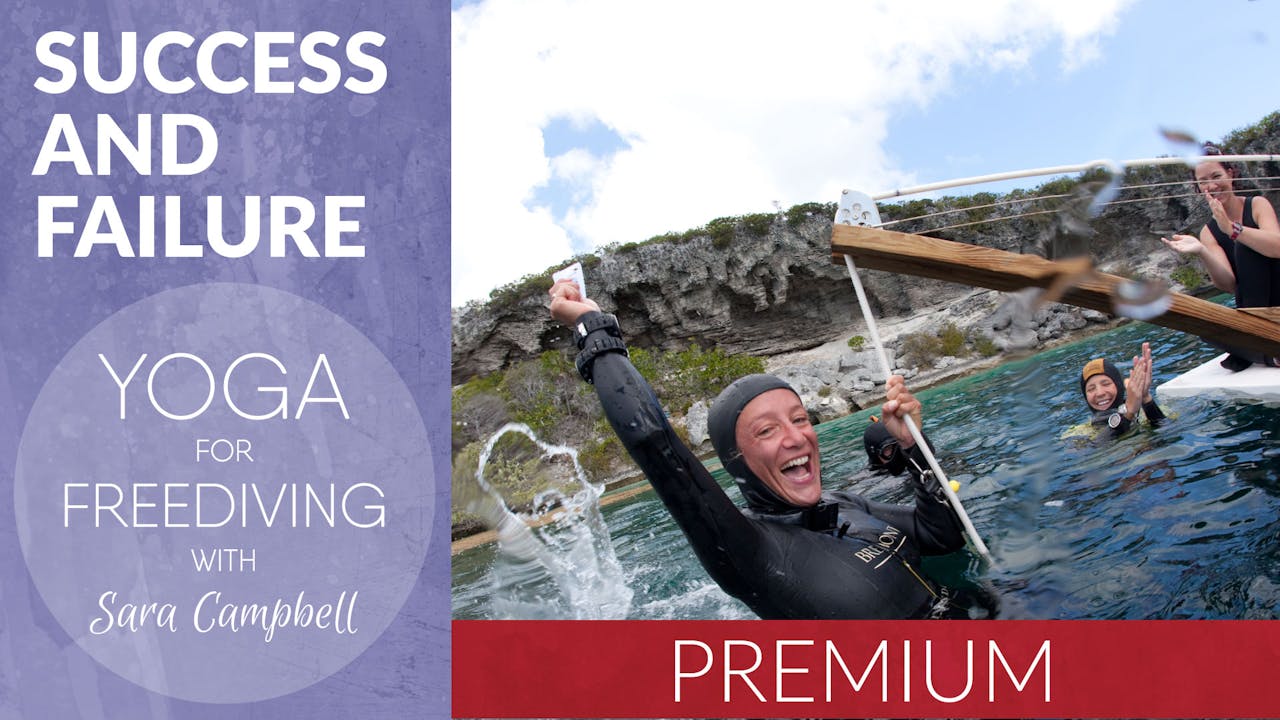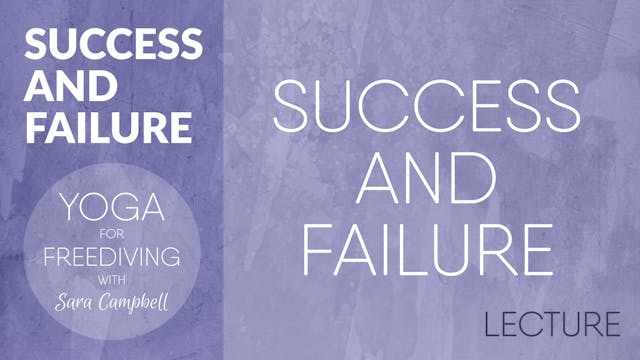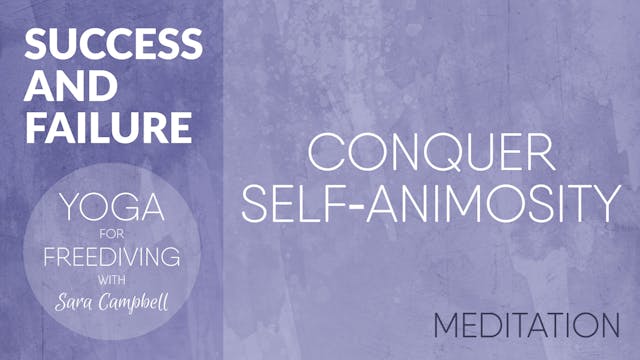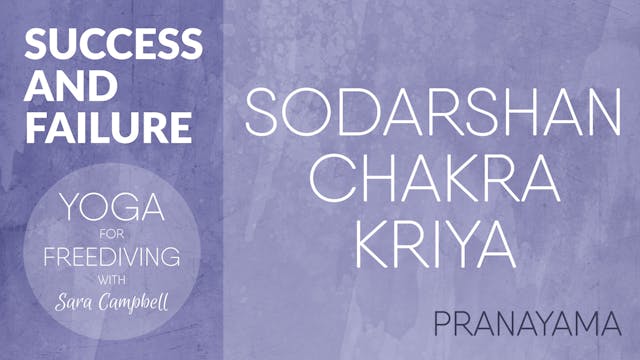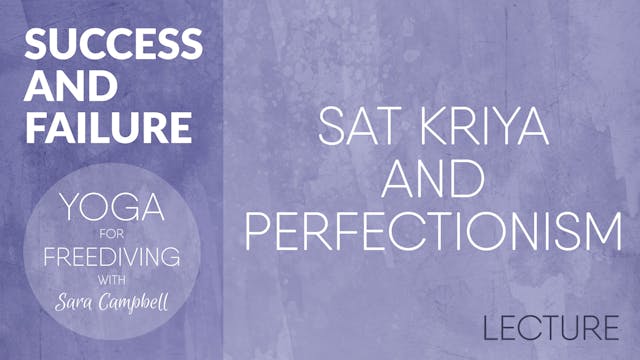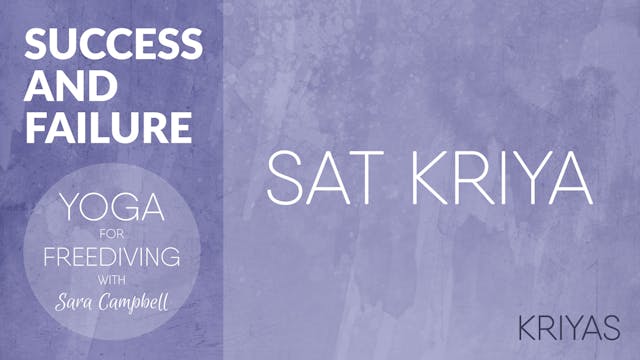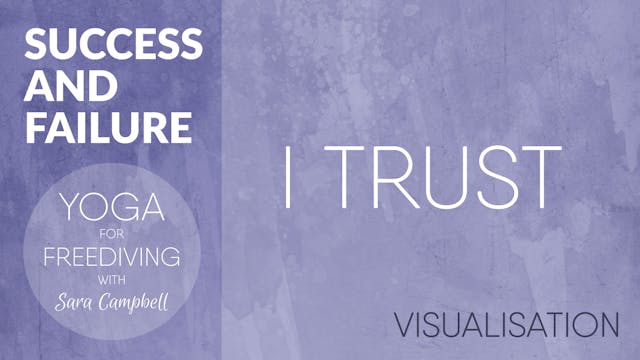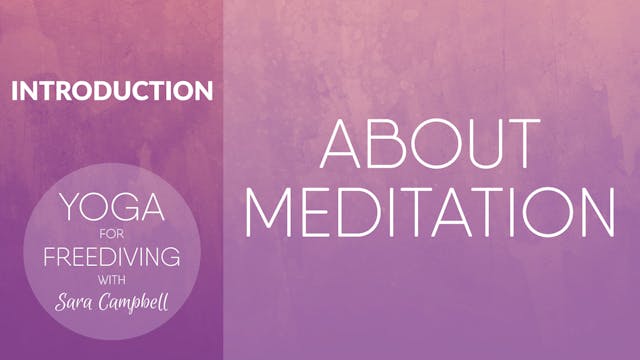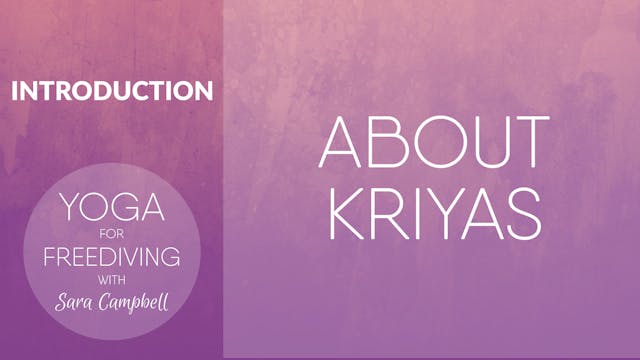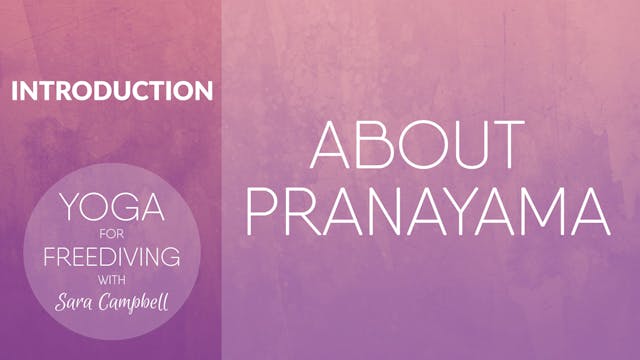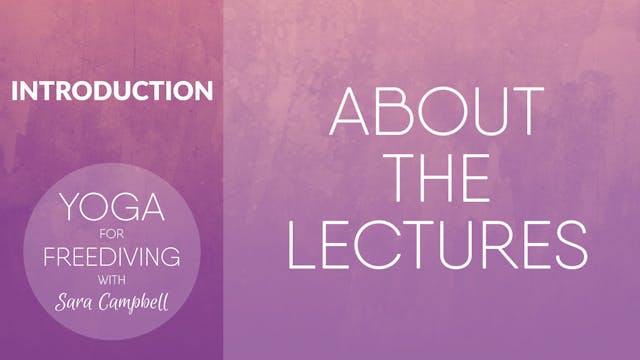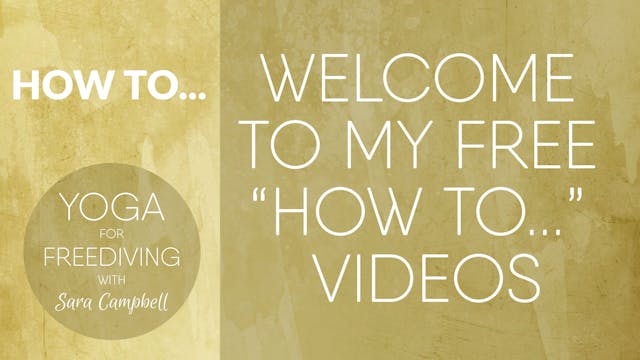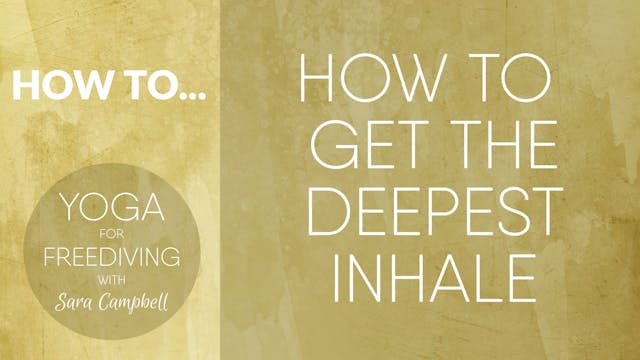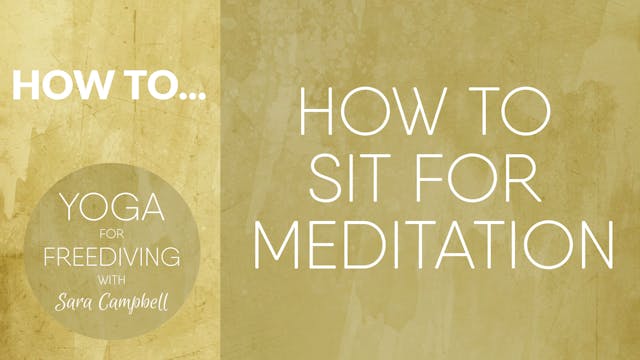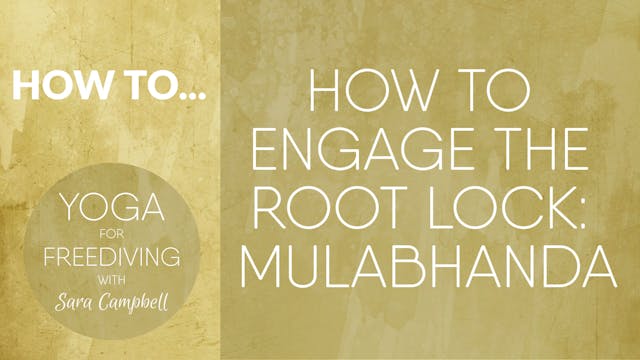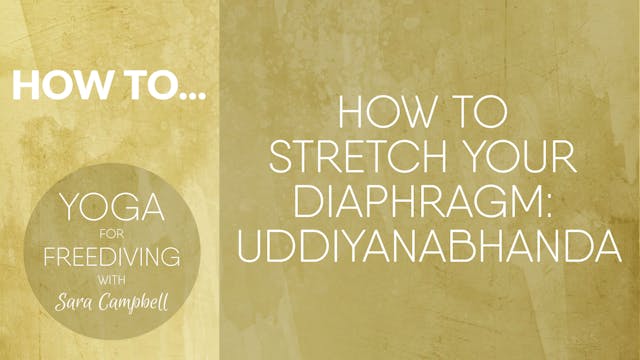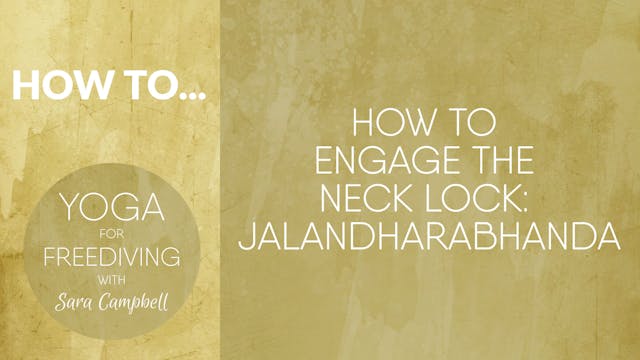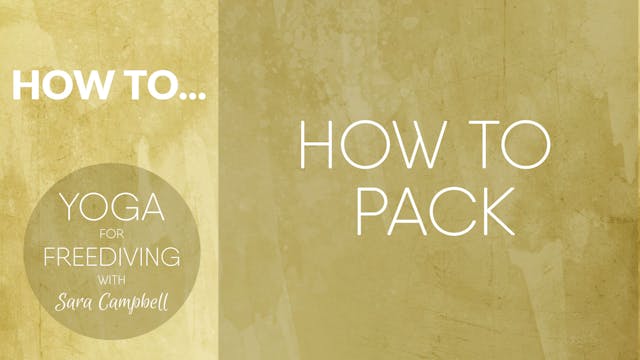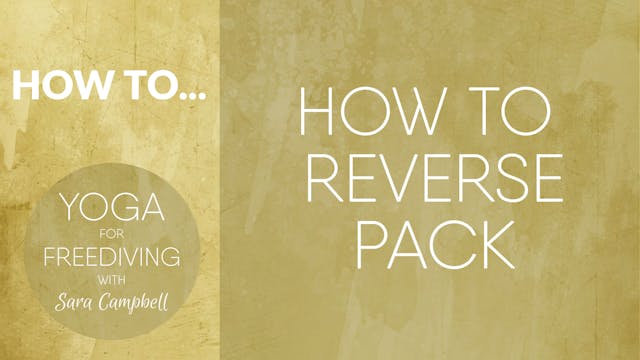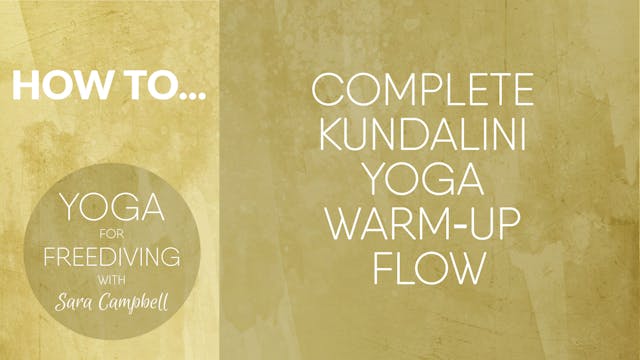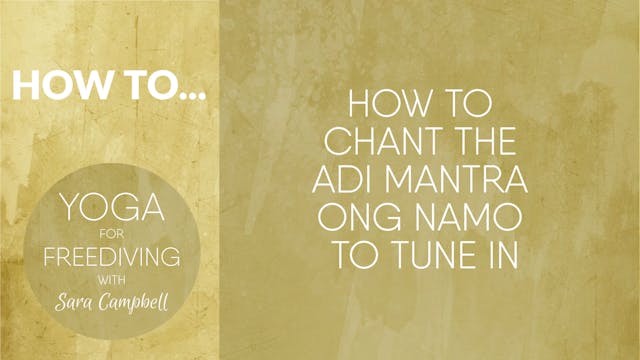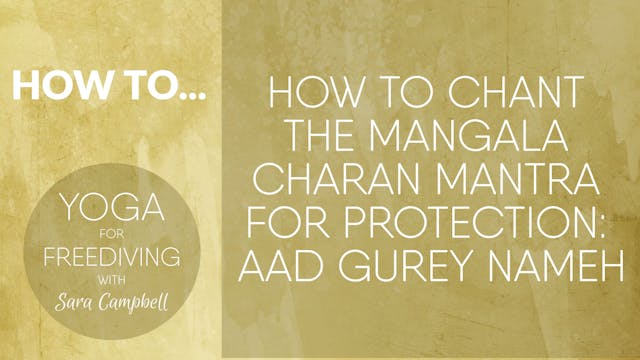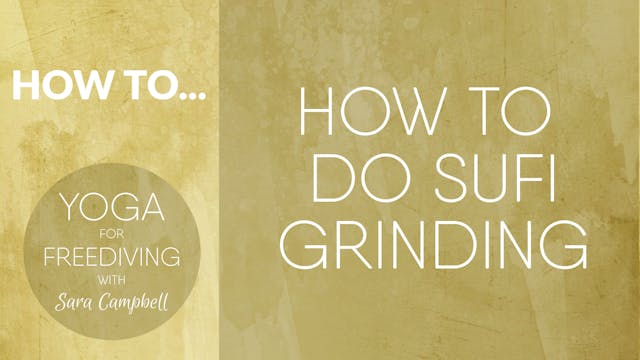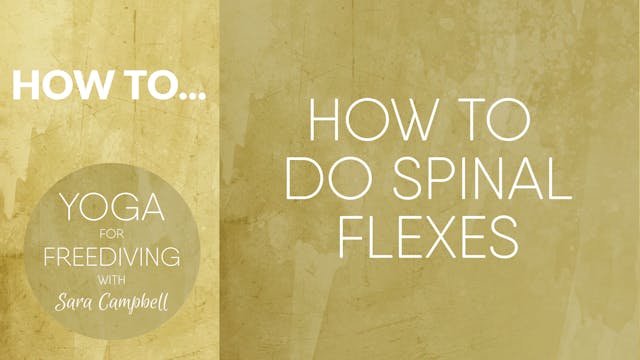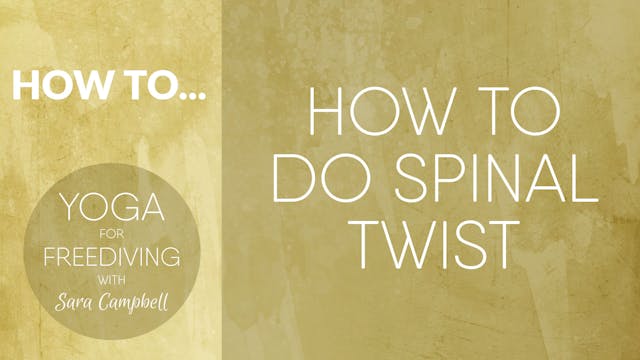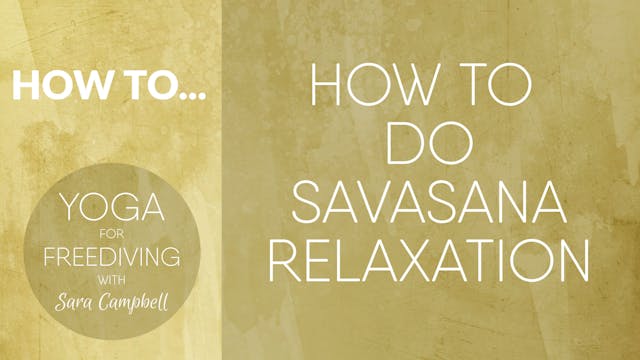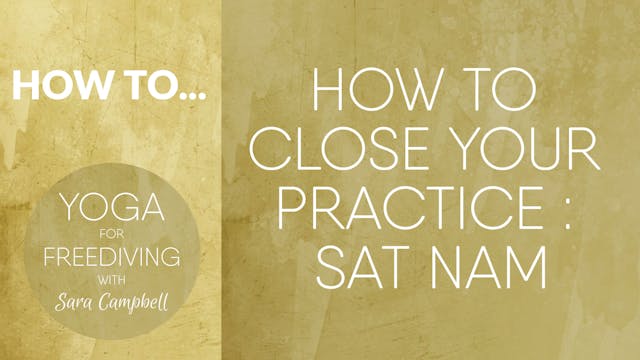Success and Failure Premium
SUCCESS AND FAILURE PREMIUM is an exclusive opportunity to work one on one with Sara online to delve deep into the reality of the polarities of success and failure, and how they rule so much of our thinking and the outcome of our performances. Realising that success and failure are just concepts and not real is a crucial step of liberation and one that leads to freedom in our diving, and a transformation in the sensations and experience. PREMIUM combines the full SUCCESS AND FAILURE video course with a personal online consultation and three one to one sessions with Sara! Limited places available.
This is for me one of the most fascinating themes within freediving, because everyone comes up against this block at some stage but it is relatively easy to resolve, once clarity and light are shed on the knot of frustration and 'failed' performances. It is the basis of the conundrum that is competitive freediving; how can we achieve success in a sport that requires us to step away from the entire concept of 'success' in order to succeed?
Success and failure are polar extremes on the human-created continuum of achievement. However, as with all human-created concepts, they are just that, concepts, or illusions. The Universe does not set out for some of us to succeed, and others to fail; it sets out for all of us to learn. Each and every situation, conversation, thought, experience, and dive, is an opportunity for us to learn. However, because we create benchmarks of what we deem to be 'success' we also create our own failures, when we fall short of our benchmark. But these numbers we fixate on as being our point of achievement are totally arbitrary; when we start out 20m seems like an impossible feat, but very soon, we are looking towards 30, 40, 50m and 20m seems paltry and disappointing as a 'limit'. These benchmarks are constantly shifting, demonstrating that they are just projections and perspectives, not real in their own right.
Every freediver should spend time with this package to sort through the illusions of polarisation, and return to the understanding that real goal and value in freediving, and life, is to use each experience, 'good' or 'bad', as a golden opportunity to learn and grow.
Videos in this course:
- Lecture: ‘Success & Failure’ - 11 mins
- Meditation: ‘Conquer Self-Animosity’ - 14 mins
- Pranayama: ‘Sodarshan Chakra Kriya’ - 21 mins
- Lecture: ‘Sat Kriya and Perfectionism’ - 12 mins
- Kriya: ‘Sat Kriya’ - 24 mins
- Visualisation: ‘I Trust’ - 32 mins
Total time: two hours
MORE ABOUT THIS COURSE
- Six videos and two hours of targeted SUCCESS AND FAILURE training
- A further two hours of tips and technique training in 22 "How to..." videos
- Video streaming on any mobile device
- Audio downloads of the lectures and visualisations to take with you wherever you want
- Step by step six week programme to ensure you get the best out of your SUCCESS AND FAILURE experience
- Life time access to all videos and content
WHY IS SUCCESS AND FAILURE IMPORTANT?
SUCCESS AND FAILURE is possibly the most powerful course yet in this series - it contains two of the three most powerful practices ever taught in the ancient technology of Kundalini Yoga, both of which I have practiced for extended periods at various times, and to which I attribute a HUGE part of my freediving performances.
We live in societies and families that are almost entirely judgement based - how smart we are, what career we have, how much money we earn, how many cars, how large our house etc etc… Without being aware of it we are constantly comparing ourselves with our colleagues, friends and peer group, and much of the time we come out badly in that comparison. This means that our self-esteem - how worthy we perceive ourselves to be - is based on what other people do, or what other people think of us. When we focus on these external benchmarks, or our own perception of them, we are powerless to change, or we put ourselves under so much pressure to out-perform others that we burn out or breakdown or simply check-out of the race. When this attitude creeps into our freediving, we compare our dives to those of our friends, or expectations which we have set for ourselves, which most of the time are based on external factors rather than any truth from inside of us.
We can each learn that the value in life is in LEARNING, and growing at our own pace, to reach our own destiny - where other people are headed, and how quickly they are getting there, has absolutely no relevance to us or our lives or dives. Once you can start to shift to learning, rather than performing, you will find that the pressure is off, the joy increases, and the experience transforms into something even greater than you could ever have dreamed of.
-
Success & Failure 1: Lecture - Success and Failure
This video lays the foundation for this entire course - it explains that both success and failure are both simply concepts, not real in themselves, as our perception of what success and failure are, is both subjective, and subject to huge shifts as we ourselves change. You will learn that letting...
-
Success & Failure 2: Meditation - Conquer Self-Animosity
This course is all about polarised concepts and how they cripple us through expectations and fears. This meditation supports the Sat Kriya and Perfectionism lecture as it gives a practice tool to counter the tendency to put immense pressure on ourselves to always be the best. Invariably being the...
-
Success & Failure 3: Pranayama - Sodarshan Chakra Kriya
Sodarshan Chakra Kriya is one of the most powerful practices in Kundalini Yoga and it is THE meditation that I attribute my incredible freediving career to. It is a challenging and complex pranayama, and therefore, if this is your first Yoga for Freediving course, I recommend you start your first...
-
Success & Failure 4: Lecture - Sat Kriya and Perfectionism
In this lecture I talk about my own painful journey of attempting my first ever 40-day practice; the powerful lessons I learned, and the incredible, unforeseeable benefits I received from finally letting go of needing to be 'the best'.
-
Success & Failure 5: Kriya - Sat Kriya
Sat Kriya, along with Sodarshan (also in this course) is another one of the most powerful Kundalini practices, and was the first most important lesson that I gained from my own early yoga practice into the powerfully destructive tendency that we all have one some level, of perfectionism. Recognis...
-
Success & Failure 6: Visualisation - I Trust
This guided visualisation is one of my favourites - students ALWAYS enter the water in a super-chilled space and are amazed at how easy, relaxed and amazing their dives are after listening to this. As well as being an amazing preparation for training and performance dives, it's also an incredible...
-
About Meditation
ABOUT MEDITATION: If the mind is our most powerful servant, meditation is the way we ensure the servant receives clear instructions and does what we actually want him or her to do!
Without meditation our servant is free to do exactly what he wants, when he wants, and then we wonder why our di...
-
About Kriyas
ABOUT KRIYAS: The word 'kriya' means 'completed action'. It is therefore both a single exercise and a series of exercises that is designed to have a specific outcome. The kriyas in Kundalini Yoga work to direct energy within our body and mind by using specific breathing techniques combined with a...
-
About Pranayama
ABOUT PRANAYAMA: Pranayama are yogic breathing exercises based on ancient techniques and wisdom. 'Prana' refers both to our breath, and also to the life-force energy within and around us all. Pranayama therefore go beyond training simply our breath and breath hold capacity, but also work on how y...
-
About the Lectures
ABOUT LECTURES: This is as close to personal coaching with me as you can get without actually getting on a plane. These lectures form the basis of my teachings, primarily looking at, gaining awareness over, and learning to work with our minds, belief systems, and fears.
If you want to know ho...
-
Welcome to my free 'How to…' videos
ABOUT THE HOW TO... SERIES: This How to… series of videos contains bite-sized pieces of yogic and freediving wisdom, many of which were crucial in me diving to 104m on one breath!
DISCLAIMER: Yoga for Freediving courses and videos are not a freediving certification; they do not certify you to ...
-
How to get the Deepest Inhale
ABOUT THE DEEPEST INHALE: Ever feel like you've taken your deepest inhale, but it's not quite deep enough? The chances are you are missing a very simple part of the inhale flow which will completely transform your final breath. Here I show you how.
For freedivers the final inhale is utterly c...
-
How to Sit for Meditation
ABOUT SITTING: One of the greatest challenges to meditation is finding a comfortable sitting position. This short and simple video talks you through the options for all levels of flexibility.
The main focus for effective meditation is the position of your spine. As long as that is straight, i...
-
How to Engage the Root Lock : Mulabhanda
ABOUT THE ROOT LOCK: Mulabhanda, also known as mulbhand or the root lock, refers in western anatomy to the pelvic floor. This muscular lock which effectively closes off the lower end of the upper body, is essential in all parts of yoga, including meditation.
We use it to hold and direct energ...
-
How To Stretch your Diaphragm : Uddiyanabhanda
ABOUT DIAPHRAGM STRETCHING: Uddiyanabhanda relates to the diaphragm, as such it's the middle bhanda, between the root and the neck lock. In freediving, this little exercise can make or break depth progress.
Stretching uddiyanabhanda is one of the most important exercises you can do as a freedi...
-
How to Engage Neck Lock : Jalandharabhanda
ABOUT NECK LOCK: Jalandharabhanda, also called jalandabhand, or the neck lock, is essential in yoga and particularly in meditation.
It is also, for freedivers, known as the glottis - that tricky little bugger that you need to keep locked in order to keep your mouthfill.
Neck lock is taught...
-
How to Pack
ABOUT PACKING: Packing is a useful tool in freediving training. Packing must be introduced and used with CAUTION and respect as it carries certain risks and adverse effects for the freediver.
Packing when used in dry stretching routines is very useful for increasing the lung capacity, enablin...
-
How to Reverse Pack
ABOUT REVERSE PACKING: Reverse packing, as the name suggests, is the opposite of packing - and is essential for safe, deep diving.
Many people, particularly early on in their training, focus on packing in order to expand their lung volume. However, for anyone wanting to dive deep, reverse pac...
-
Complete Kundalini Yoga Warm-Up Flow
ABOUT THE FLOW: These warm-up exercises can be used to prepare for other practice, or can be used in their own right. This flow will leave you energised, yet relaxed.
I used and adapated these exercises to prepare myself for my deep freedives and I know they have helped all of my students to ...
-
How to chant the Adi Mantra Ong Namo to Tune In
ABOUT ONG NAMO: We begin every practice of Kundalini Yoga with the Adi Mantra: "Ong Namo Guru Dev Namo'. This mantra is the foundation for my four World Records in freediving.
I explain more about this magical mantra in my DEEP RELAXATION programme, but learning to chant it, and enjoying the ...
-
How to chant the Mangala Charan Mantra for Protection : Aad Gurey Nameh
ABOUT AAD GUREY: This mantra is often used after the Adi Mantra when tuning in for our practice, but it can be used alone and is great for protection.
Chanting mantra is not the same as singing. It doesn't matter if you have a good voice, or are in tune. It is about the vibrations you create ...
-
How to do Alternate Nostril Breathing and Breath of Fire
ABOUT PRANAYAMA: These two simple breathing exercises, or pranayamas, are two of the most important yoga breaths you will learn.
Alternate nostril breathing is great for bringing awareness to the breath, the sensations of the breath and for creating balance.
Breath of Fire is used to stimu...
-
How to do Sufi Grinding
ABOUT SUFI GRINDING: The poor Sufis…. Haha! Don't worry, no-one was harmed in the making of this video! :-)
Sufi grinding is my favourite yoga warm-up exercise and here I show you how to do it. It helps to soften and relax the whole of the spine, encourages deep, powerful breathing which clea...
-
How to do Spinal Flexes
ABOUT SPINAL FLEX: Spinal Flex exercises help us to systematically warm-up and wake up the spine. Our spine performs so many amazing functions for us throughout our daily lives that it deserves and needs to be looked after and given a bit of love. This is the perfect way.
Along with the other...
-
How to do Spinal Twist
ABOUT SPINAL TWISTS: Let's do the twist! This yogic version of the twist focuses on the spine, this time increasing its flexibility through the vertical axis. It opens up our chest and shoulders, helps to stretch and tone the waist and gives all of your digestive organs a wonderful massage.
Al...
-
How to do Neck Rolls
ABOUT NECK ROLLS: Neck rolls are a simple part of our yoga and freediving stretches. We all carry stress and tension in our neck, throat, jaw, shoulders and upper back and this simple exercise can help us to identify and release some of it.
For freedivers suffering equalisation problems, the i...
-
How to do Savasana Relaxation
ABOUT RELAXATION: Use this little video on its own when you want a quick time-out from your day, or a boost to your energy. It is essential we balance our stressful lives with regular relaxation - here's how!
It is recommended to practice this every day for 11 minutes if you're a man, and thr...
-
How to Close your Practice: Sat Nam
ABOUT SAT NAM: We end all of our yoga and meditation practices with Sat Nam. It means 'I am Truth' or 'Truth is what I am' and is a way to connect with our authentic self, beyond our perceptions and beliefs of who or what we think we should be.
The mantra also appears in many of the meditation...
-
Visualisation to Go - I Trust.mp3
58.8 MB
-
Lectures to Go - Sat Kriya and perfectionism.mp3
21.3 MB
-
Lectures to Go - Success and Failure.mp3
20.3 MB
-
Success & Failure - Six Week Programme.pdf
1.24 MB
